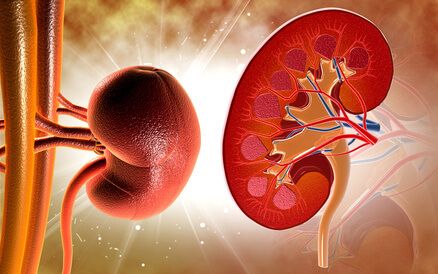In this article, we will examine the use of hybrid coronary revascularization to treat multivessel coronary artery disease.
Coronary artery disease (CAD) is the most common cause of morbidity and mortality in the western world.

The presence of multivessel CAD is associated to high short and midterm mortality and coronary artery bypass graft (CABG) is at present the gold standard treatment according to guidelines. However, this strategy often involves complications and longer hospital stay that will take the toll on health care resources.
In this scenario, PCI has become a valid alternative whenever certain factors will contribute to increase surgical risk.
It has been a while now since the first hybrid revascularization (HR) was proposed to treat a select group of patients with a mammary artery bypass graft to the anterior descending and DES stenting to the rest of the compromised vessels. Complete revascularization was similar in both groups.
In this meta-analysis of 14 studies (12 observational and 2 randomized) including 4226 patients, 1649 received HR (39%) and 2617 CABG.
Read also: Invasive Myocardial Viability Indexes.
Populations were similar: 76% were men, 81% had hypertension, one third diabetes, 4% kidney function deterioration, 55% low ejection fraction, 15% left main lesion, triple vessel disease, SYNTAX Score 22 and EuroSCORE 4.4.
At 30 days there were no differences in mortality (1.28% RH vs. 1.43% CABG) or MACCE. Patients undergoing HR presented shorter hospital stay, and lower rates of transfusion and acute kidney failure, even though reintervention for bleeding was similar.
At 5 years, mortality was similar between the strategies (odds ratios [OR]: 1.55; 95% confidence interval [CI]: 0.92−2.62; I2 = 83.0%), as was MACCE ((OR: 0.97; 95% CI: 0.47−2.01; I2 = 74.7%).
Read also: Real-World Revascularization Strategy for Left Main Coronary Artery: Surgery or PCI?
CABG showed lower need for reintervention at 29 month followup (OR: 1.51; 95% CI: 1.03−2.20; I2 = 18%).
Conclusion
This meta-analysis suggest hybrid revascularization is feasible and safe to treat multivessel disease. However, hybrid revascularization benefits must be carefully outweighed against increased risk of long-term repeat revascularization. This is why it is critical to thoroughly assess and select patients.
More studies are needed to better assess the differences in long term mortality between these two strategies.

Dr. Carlos Fava.
Member of the editorial board of SOLACI.org.
Reference: Sanjana Nagraj, et al. Catheter Cardiovasc Interv. 2022;100:1182–1194.
Subscribe to our weekly newsletter
Get the latest scientific articles on interventional cardiology





